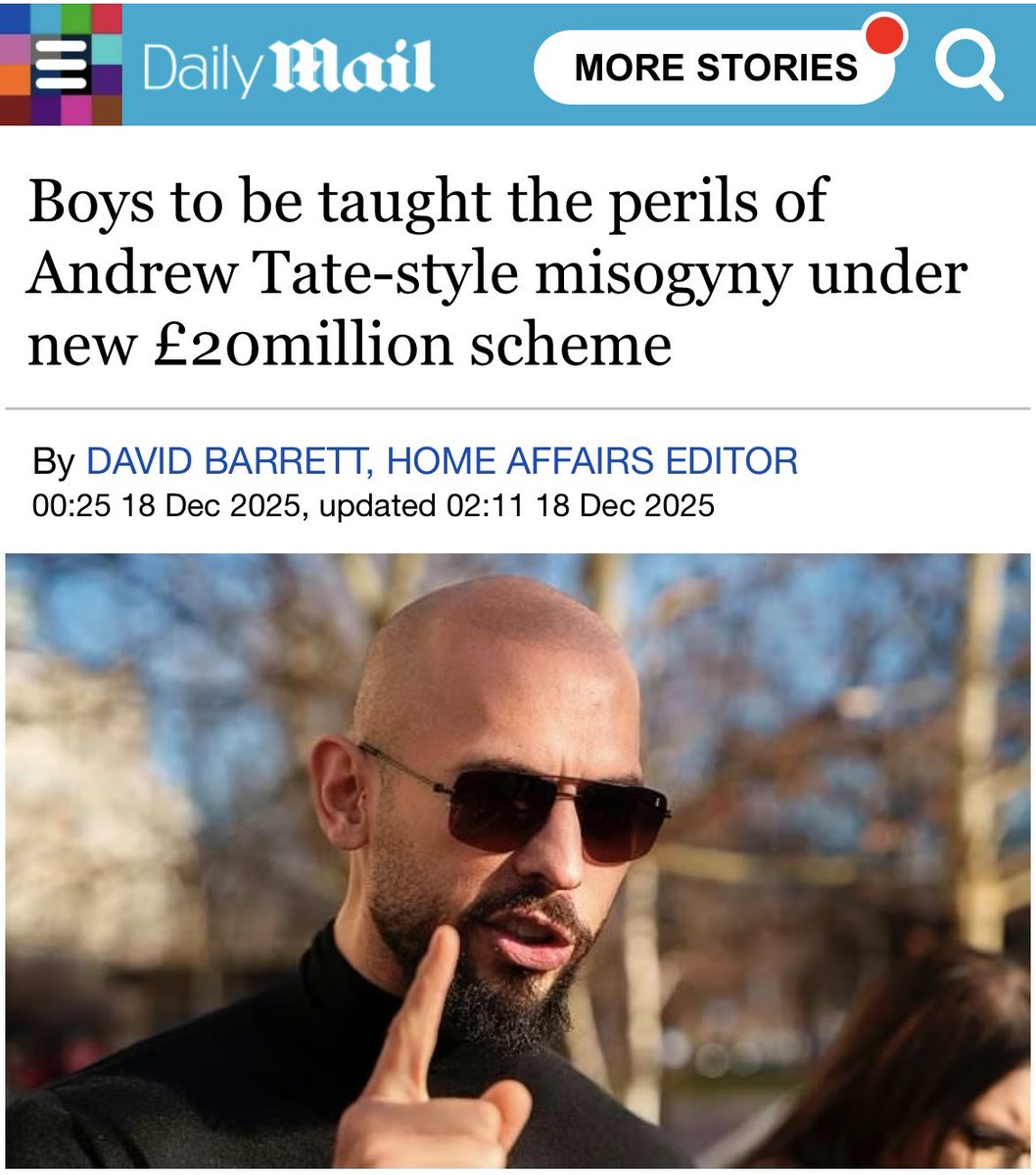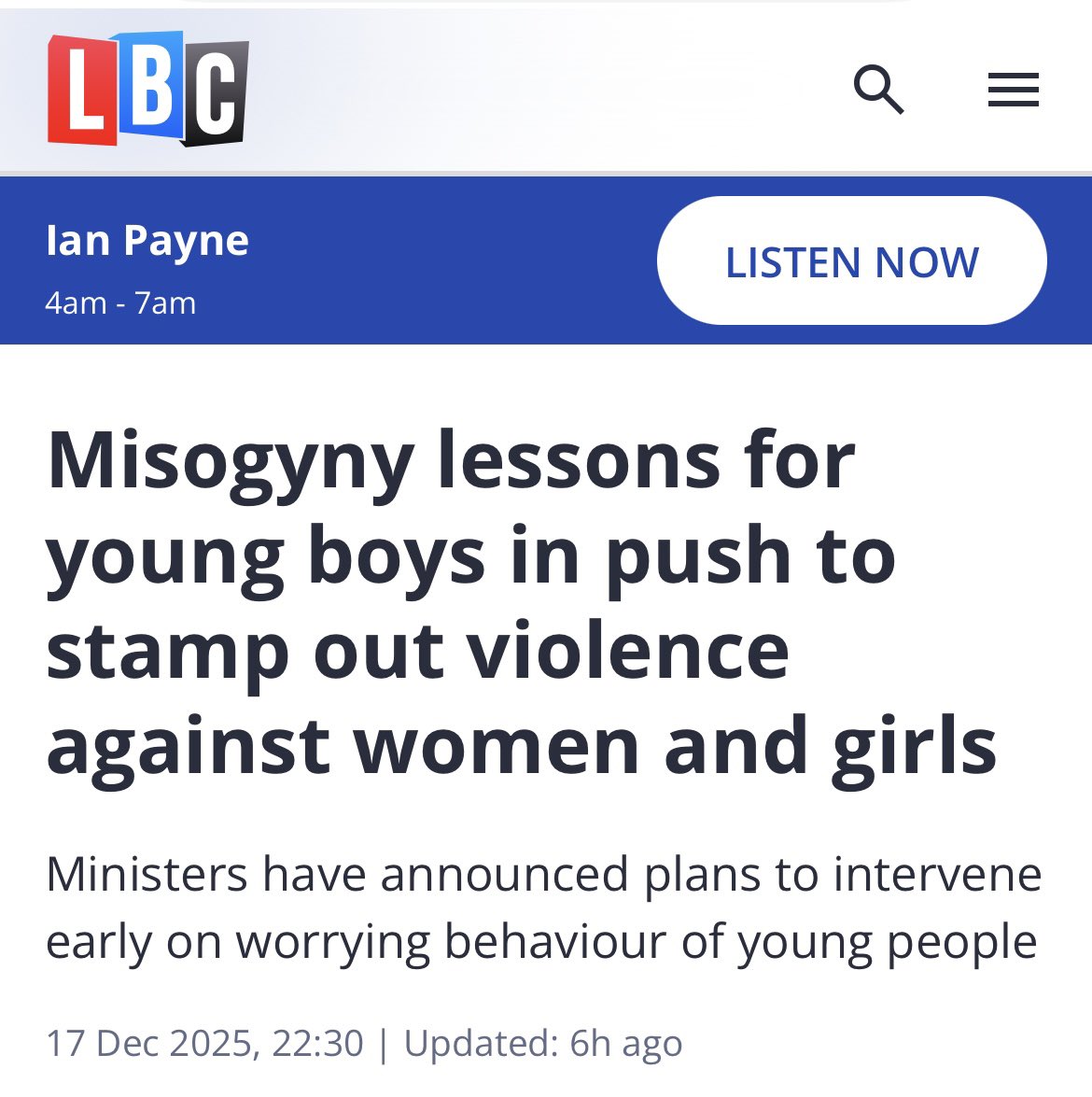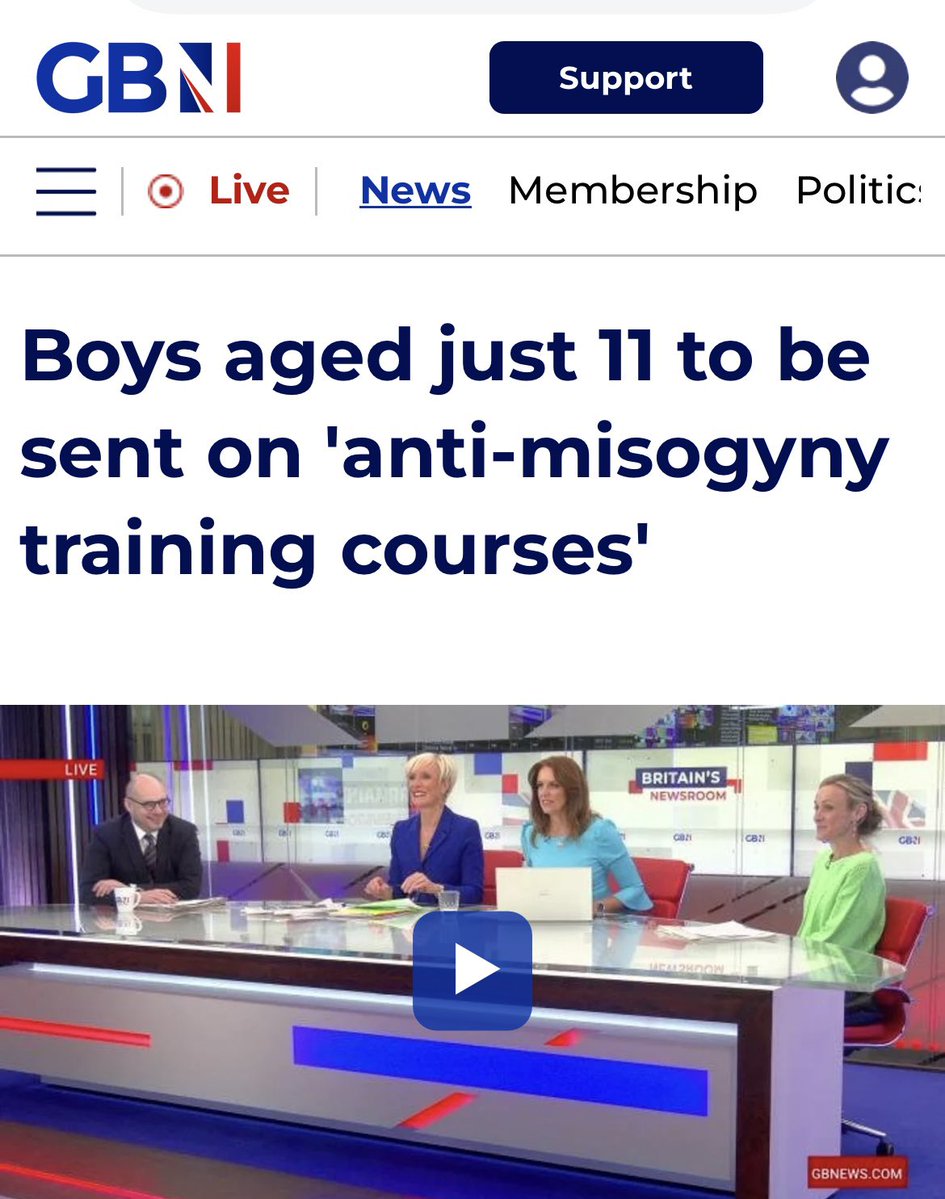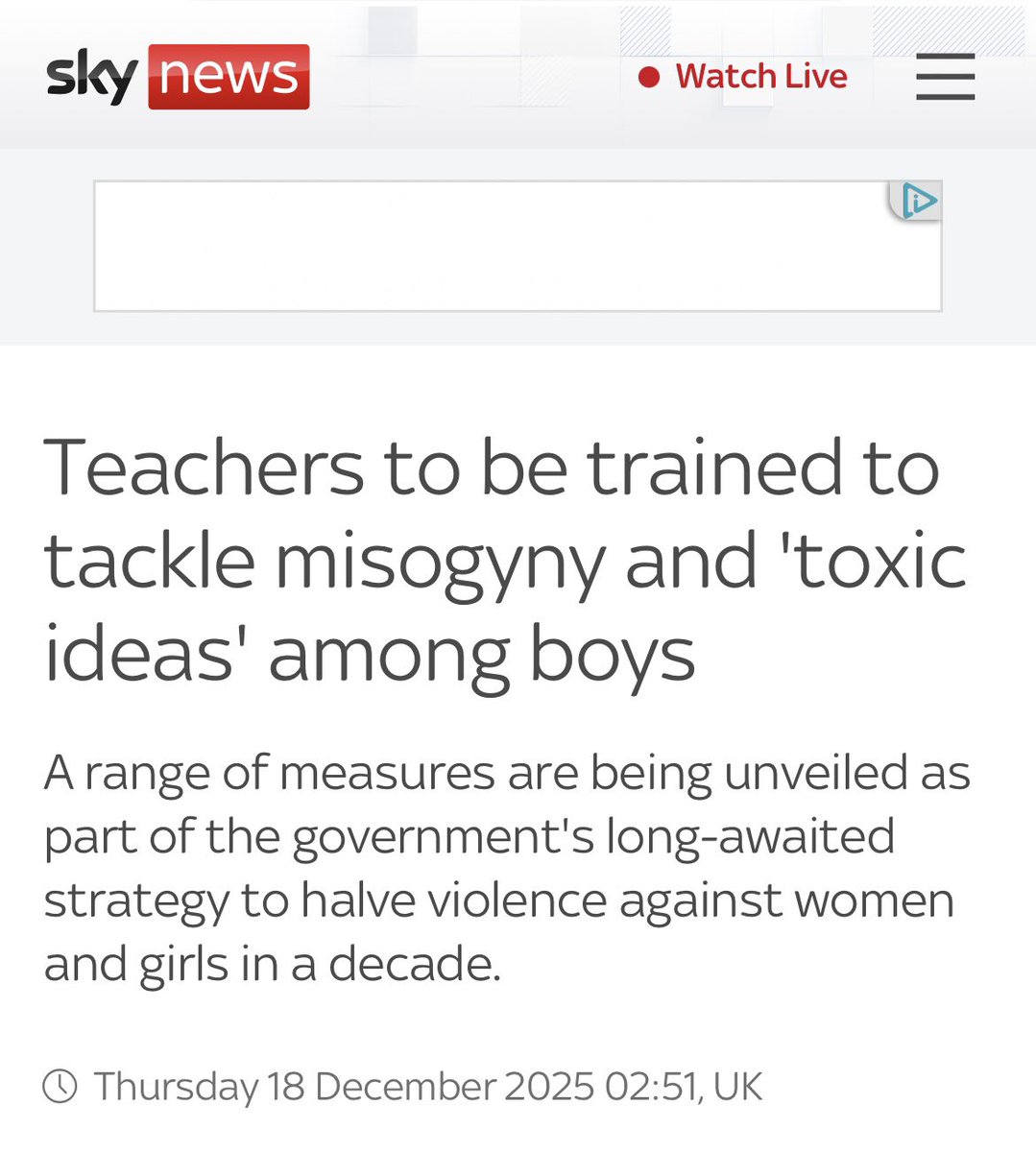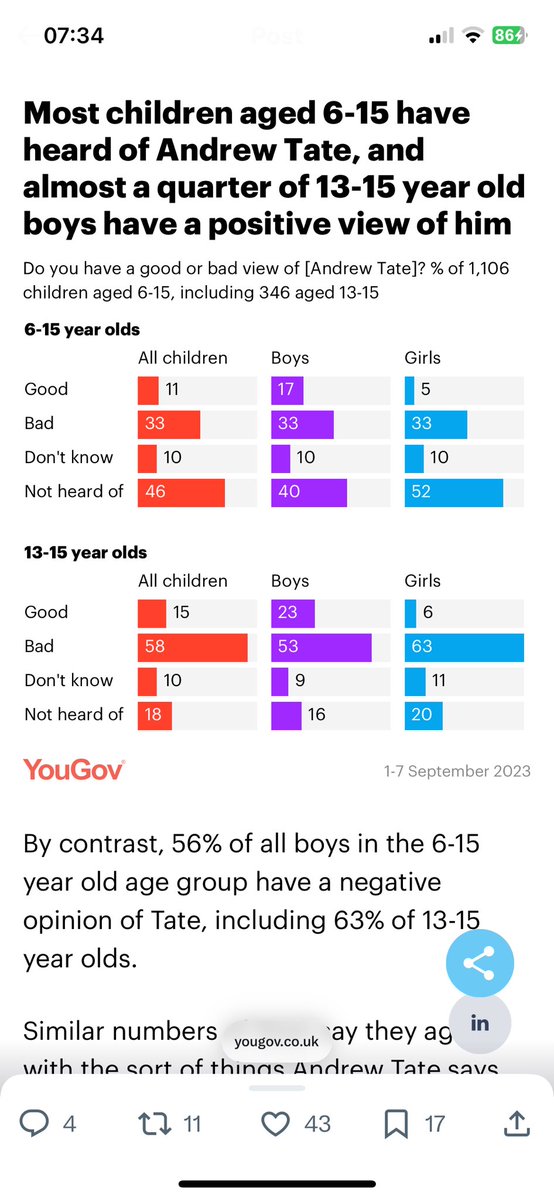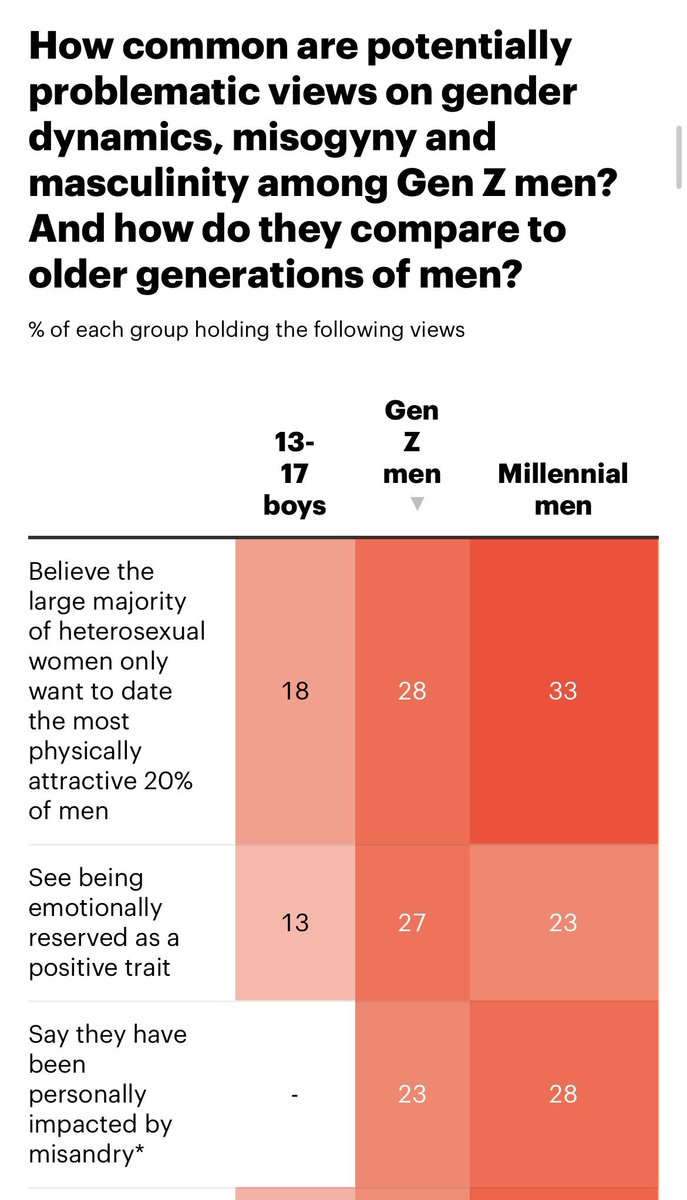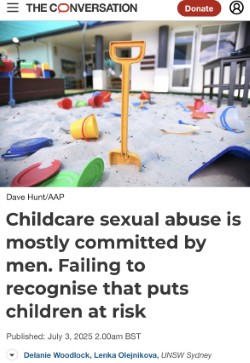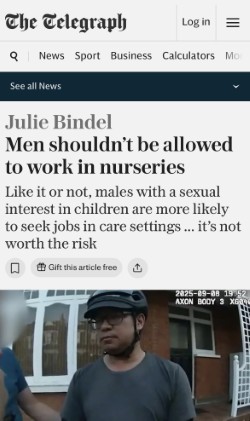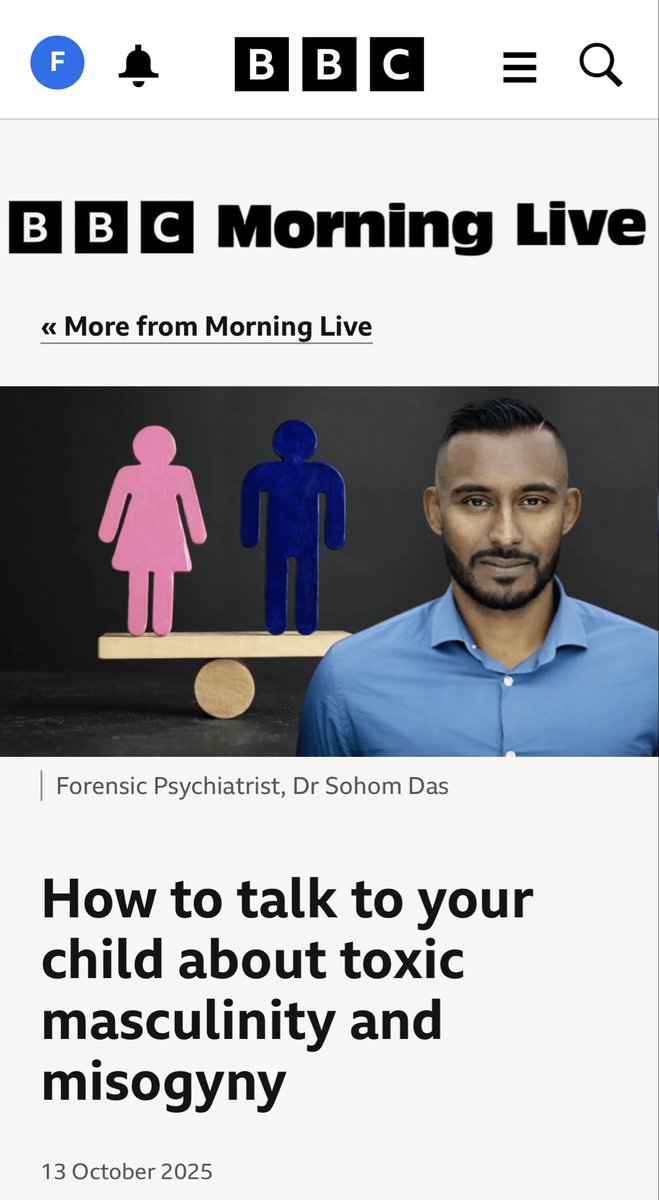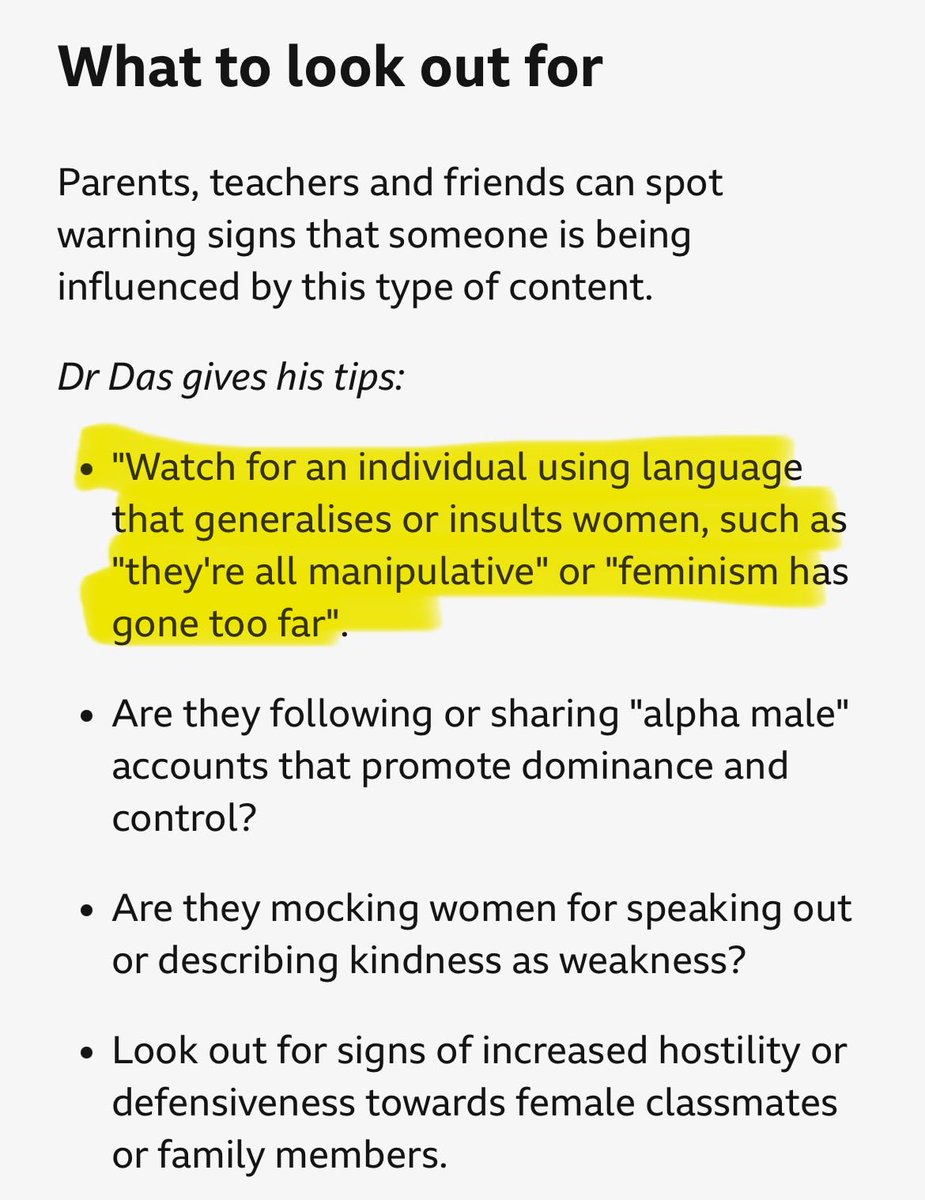1/15
A charity surveyed more than 10,000 children aged 13-17 in England/Wales about their experiences:
“In contrast to DA in adults, the survey found boys in relationships are more likely to say they experience violent or controlling behaviours (57%) compared to girls (41%)”
A charity surveyed more than 10,000 children aged 13-17 in England/Wales about their experiences:
“In contrast to DA in adults, the survey found boys in relationships are more likely to say they experience violent or controlling behaviours (57%) compared to girls (41%)”

2/15
If the data showed girls were saying they experience these behaviours more than boys, I suspect gender would be focused on much more in the headline, in the article & in comments made by commentators
Here’s a link to the actual report: youthendowmentfund.org.uk/wp-content/upl…
If the data showed girls were saying they experience these behaviours more than boys, I suspect gender would be focused on much more in the headline, in the article & in comments made by commentators
Here’s a link to the actual report: youthendowmentfund.org.uk/wp-content/upl…
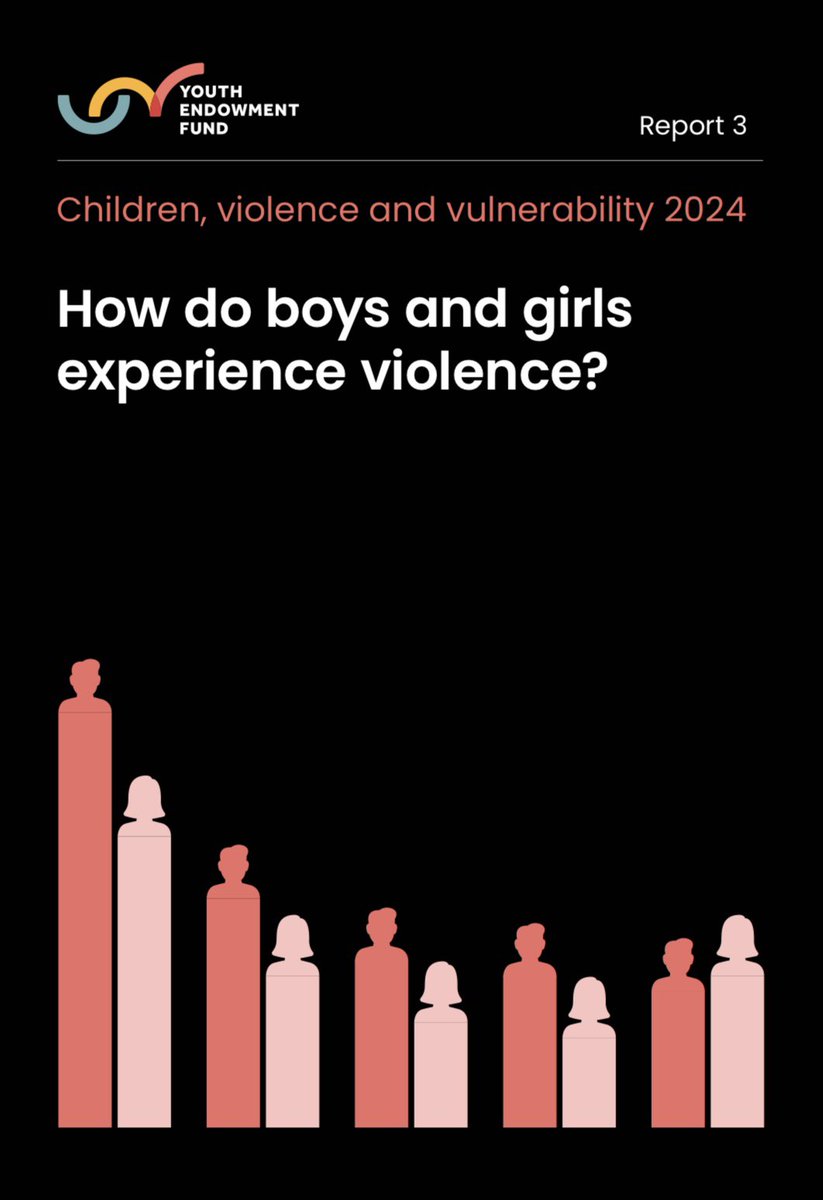
3/15
Boys admitting more perpetration doesn’t necessarily mean they’re perpetrating it more. It may simply means girls admit it less, especially if they want to appear as the victim to hide their abusive actions
The rates of sexual violence are very similar
Boys admitting more perpetration doesn’t necessarily mean they’re perpetrating it more. It may simply means girls admit it less, especially if they want to appear as the victim to hide their abusive actions
The rates of sexual violence are very similar

4/15
“Surprisingly”!?
This has a rather strong implication behind it
When we constantly give boys the message that they matter less, & give girls the message that they must be respected at all costs, perhaps these percentages aren’t surprising at all
“Surprisingly”!?
This has a rather strong implication behind it
When we constantly give boys the message that they matter less, & give girls the message that they must be respected at all costs, perhaps these percentages aren’t surprising at all

5/15
Notice the wording of the report. It says boys are more likely to be involved in violence but that “the rates are high for girls too” when it’s 24% & 16% respectively but no such commentary is used regarding sexual assault - 6% for girls & 7% for boys

Notice the wording of the report. It says boys are more likely to be involved in violence but that “the rates are high for girls too” when it’s 24% & 16% respectively but no such commentary is used regarding sexual assault - 6% for girls & 7% for boys
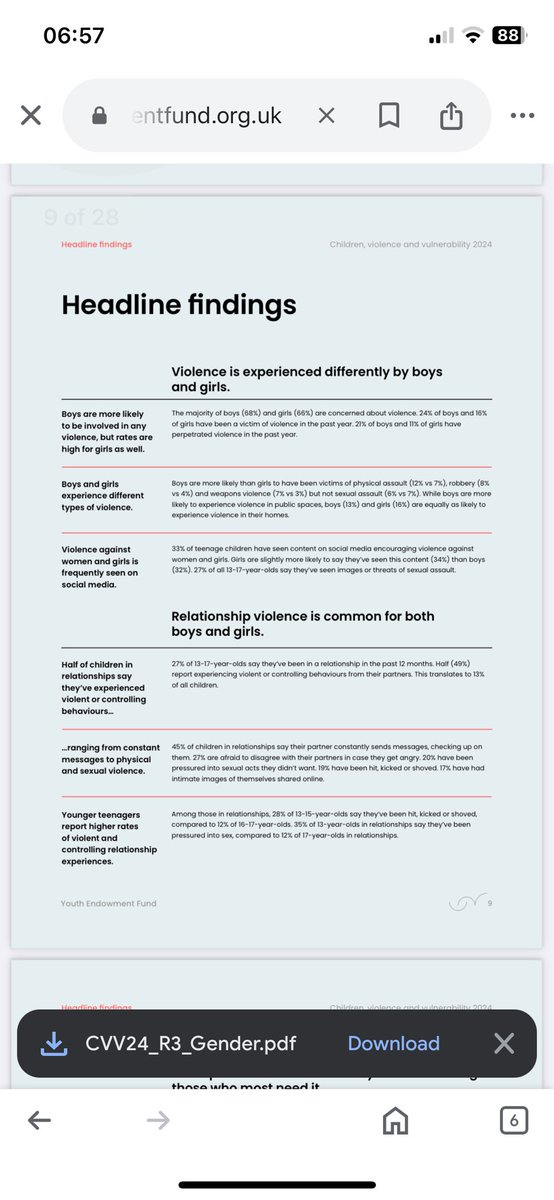

6/15
It looks like young people were asked about seeing violence against women & girls online. I wonder if they were asked about seeing violence against men & boys online?
It looks like young people were asked about seeing violence against women & girls online. I wonder if they were asked about seeing violence against men & boys online?

7/15
Figure 1.2 highlights the proportion of 13-17yr olds who perpetrated violence in the last 12 months
I think more accurate to say it highlights the proportion of 13-17yr olds who *admitted* to perpetrating violence in the last 12 months

Figure 1.2 highlights the proportion of 13-17yr olds who perpetrated violence in the last 12 months
I think more accurate to say it highlights the proportion of 13-17yr olds who *admitted* to perpetrating violence in the last 12 months
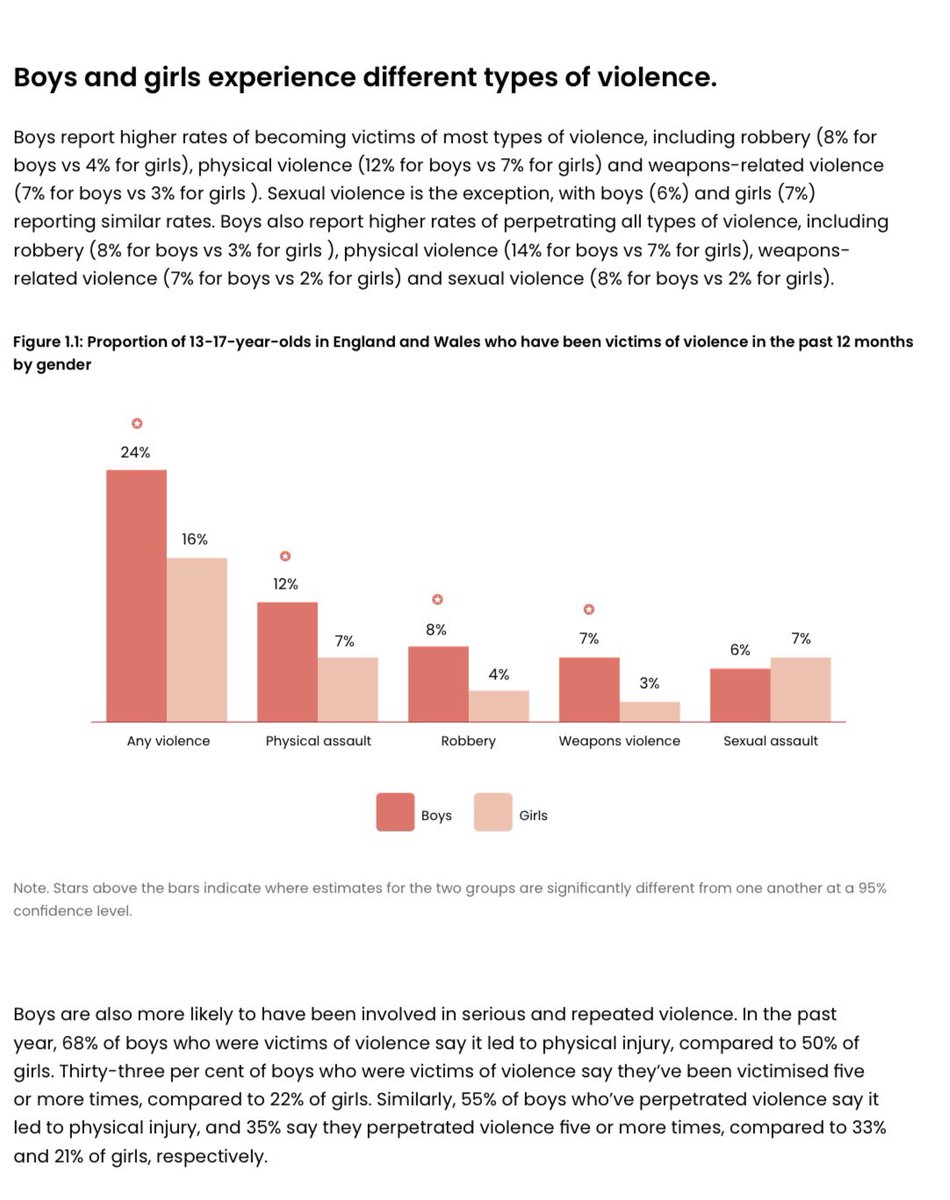

8/15
The report shows boy participants more than girl participants report experiencing higher rates of violent & controlling behaviour from a partner; higher rates of partner going through their phone; & higher rates of sexual coercion but….
The report shows boy participants more than girl participants report experiencing higher rates of violent & controlling behaviour from a partner; higher rates of partner going through their phone; & higher rates of sexual coercion but….

9/15
… look at the wording below. What does this imply? It’s OK for boys to experience violence & abuse if the impact is not as severe compared to the impact reported by girls who experience violence & abuse?
Why were no questions asked about impact?
… look at the wording below. What does this imply? It’s OK for boys to experience violence & abuse if the impact is not as severe compared to the impact reported by girls who experience violence & abuse?
Why were no questions asked about impact?

10/15
A wealth of literature shows boy & men are less likely to report severe impact & more likely to minimise the effects compared to girls/women
The report does not acknowledge that but…
A wealth of literature shows boy & men are less likely to report severe impact & more likely to minimise the effects compared to girls/women
The report does not acknowledge that but…
11/15
… it does imply that boys & girls having different thresholds for what they consider violence or abuse could lead to boys being more likely to say they experienced abuse
… it does imply that boys & girls having different thresholds for what they consider violence or abuse could lead to boys being more likely to say they experienced abuse
12/15
In a world where abusive words towards women are considered violence, & non-physically violent actions against women come under ‘VAWG’ it’s astounding that the report implies how different perceptions may influence how only boys & not girls may interpret violence
In a world where abusive words towards women are considered violence, & non-physically violent actions against women come under ‘VAWG’ it’s astounding that the report implies how different perceptions may influence how only boys & not girls may interpret violence
13/15
If the report showed more girl participants than boy participants reported violence would we see commentary implying different perceptions girls may have of violence may influence their interpretations?
The bias here is blatant
If the report showed more girl participants than boy participants reported violence would we see commentary implying different perceptions girls may have of violence may influence their interpretations?
The bias here is blatant
14/15
When asking boys & men about their abusive experiences it can be useful to ask about injuries as this avoids interpretation. Recent ONS data showed male victims were more likely than female victims to report severe injury 👇
When asking boys & men about their abusive experiences it can be useful to ask about injuries as this avoids interpretation. Recent ONS data showed male victims were more likely than female victims to report severe injury 👇
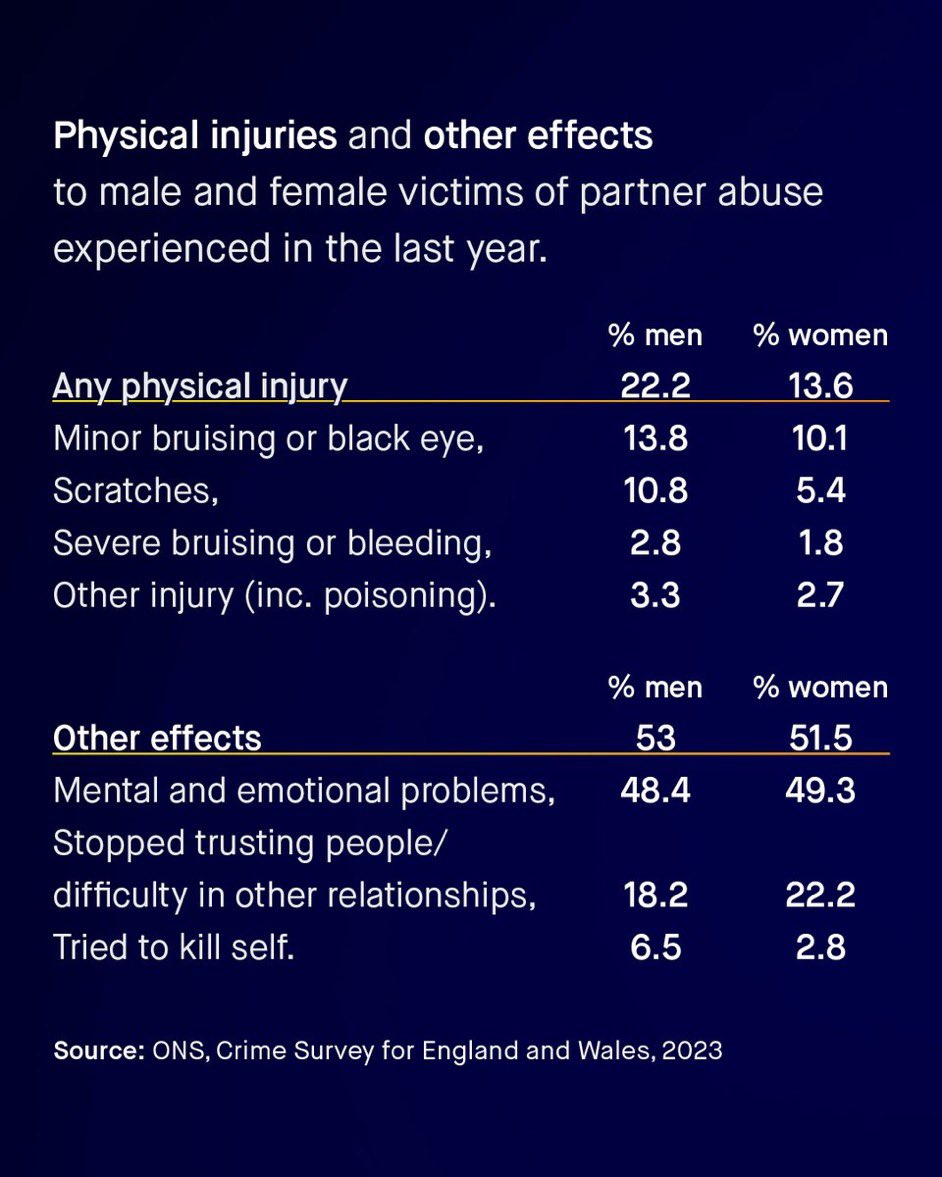
15/15
Sadly, bit not surprisingly this is yet another example of how the abuse of boys/men is minimised & to some degree dismissed so there can be a focus on the abuse of girls/women even when the data shows boys are reporting it more
Male victims deserve better


Sadly, bit not surprisingly this is yet another example of how the abuse of boys/men is minimised & to some degree dismissed so there can be a focus on the abuse of girls/women even when the data shows boys are reporting it more
Male victims deserve better

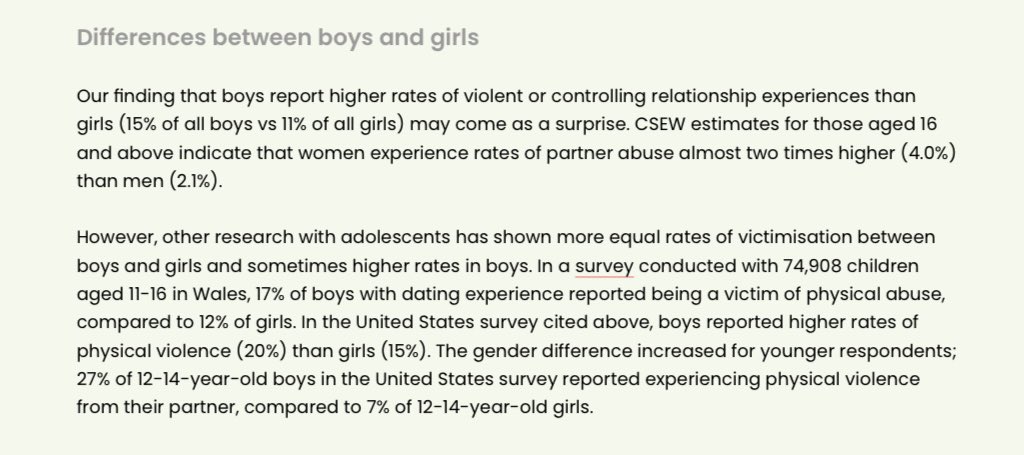

• • •
Missing some Tweet in this thread? You can try to
force a refresh


